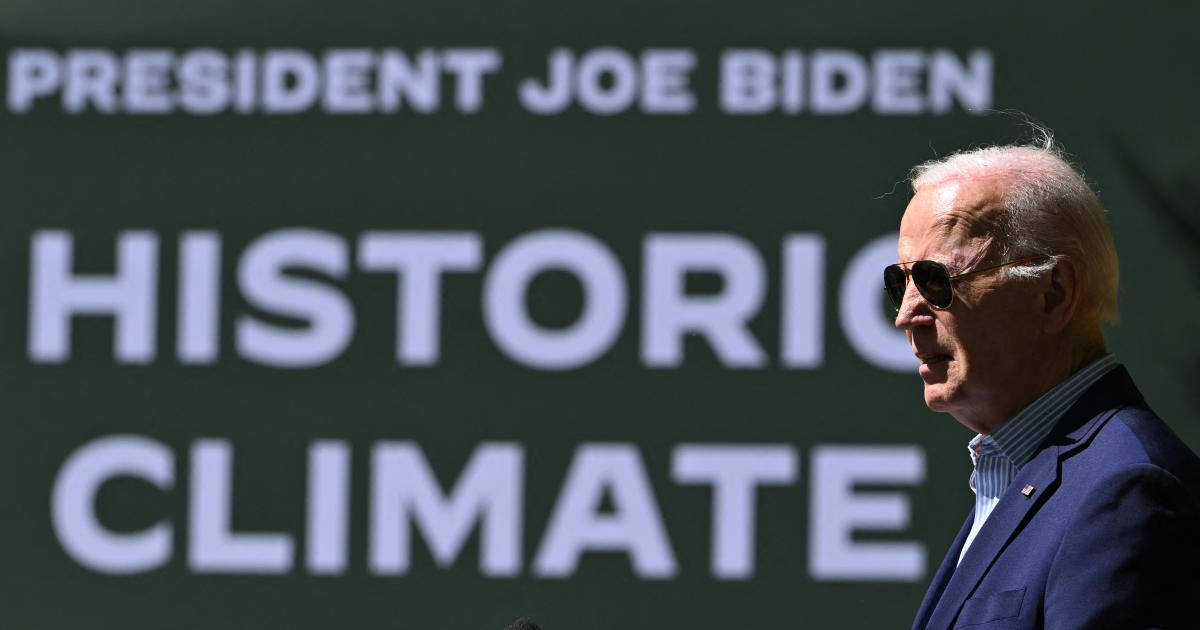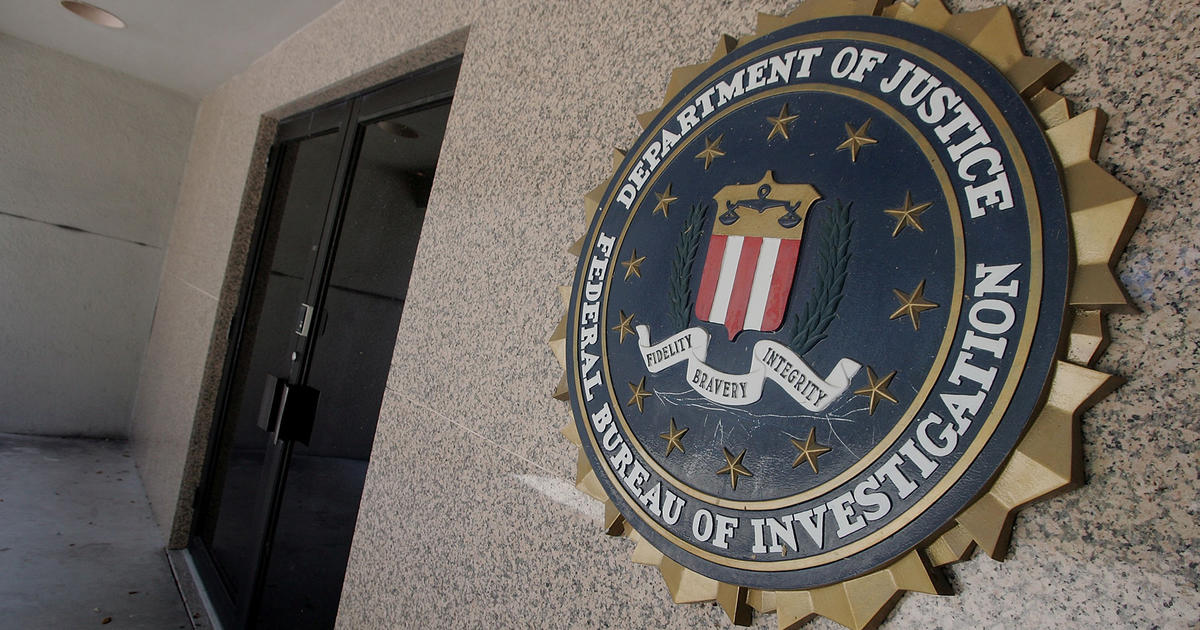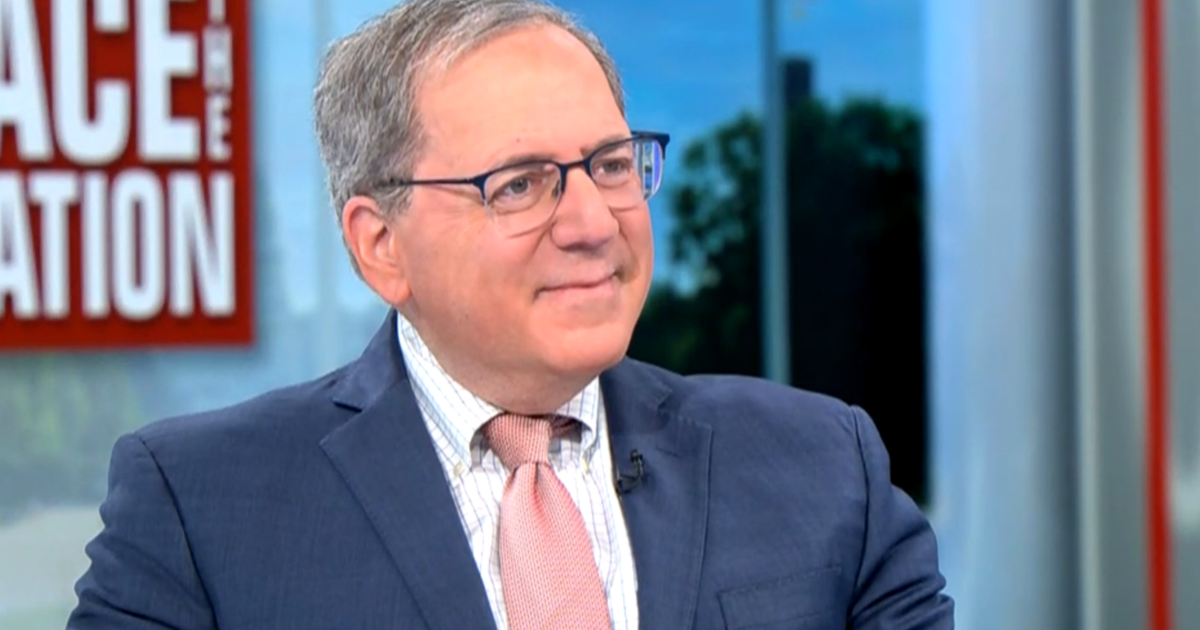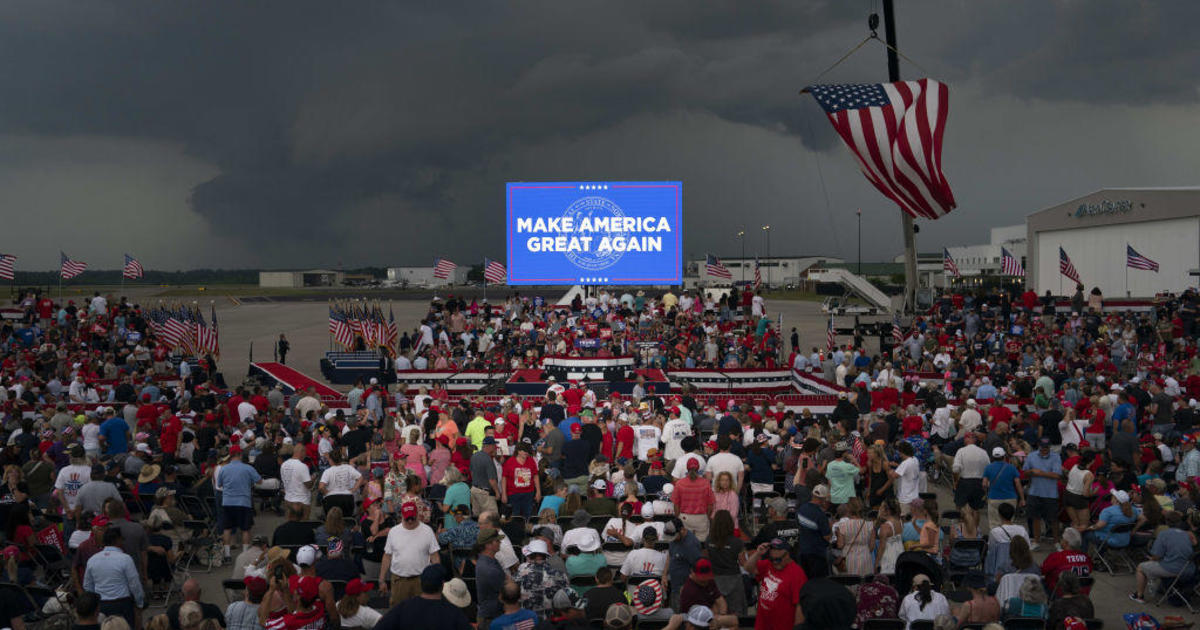Korea expert discusses advancements in North Korea's nuclear missile program
In this episode of Intelligence Matters, Michael Morell interviews Sue Mi Terry, senior fellow and Korea chair at the Center for Strategic and International Studies about the threats posed by North Korea to U.S. national security. They discuss the advancement of North Korea's nuclear missile program as U.S. attempts to negotiate denuclearization have halted. Terry is concerned about possible North Korean provocation during the Biden administration transition.
HIGHLIGHTS:
- North Korea and nuclear weapons: "They pursued nuclear weapons for deterrence. What they truly want, the overarching goal, is regime survival. Nuclear weapons serve that purpose. With nuclear weapons they can deter the United States or any other threat. Nuclear weapons also give Kim Jong-un North Korean regime legitimacy. It is a rallying card. With nuclear weapons, they can rally the people. It is a source of pride for the North Koreans. It justifies all the deprivations that those people have to go through because 'we at least are a nuclear weapons power.' It gives North Korea prestige. What is North Korea without nuclear weapons?"
- North Korea and provocation around elections: "I'm very concerned that the North Koreans will revert to provocation now that we have President-elect Biden. There's always a provocation cycle. Historically with the North Koreans, there is a provocation that's bracketed around the election. Historically, the North Koreans like to conduct a provocation to get the attention of Washington, to gain leverage in negotiation. I'm so concerned that they will test the Hwasong 16 missile that we saw October 10th."
- What Biden administration should do: "In the immediate term, we need to send a signal to North Korea to not conduct a provocation. To not return to the early days when President Obama came to office and North Korea conducted a series of provocations in the first four months of the Obama administration, which led to the strategic patience. We need to send a message to the North Koreans to buy some time, because once they conduct this provocation, we have no option but to continue with sanctions. Meanwhile, we should be open to possibly having a dialogue with North Korea, starting with working level talks. I don't think the Biden administration would be eager to engage in any kind of summitry, pageantry or theatrics."
Download, rate and subscribe here: iTunes, Spotify and Stitcher.
"Intelligence Matters": Sue Mi Terry transcript
Producer: Paulina Smolinski
MICHAEL MORELL: This episode is part of a series of episodes that we're doing between the election and the inauguration on the key national security issues facing our nation. Obviously, one of those is North Korea. Give us a 50,000 foot summary of where President Obama left the North Korea issue in January of 2017, and what happened during the Trump administration.
SUE MI TERRY: President Obama pursued what the administration calls strategic patience policy. President Obama did not really talk to Kim Jong-un. There was not an active conversation or negotiation towards the end. He pursued a sanctions policy primarily because -- I think it was Bob Gates a long time ago who said 'we're not going to buy the same horse for the third time.' Meaning that we negotiated with North Korea.
We had a framework during the Clinton administration. We had six party talks during the Bush administration. And we're not going to just return to negotiations. President Obama and the administration wanted to get away from this cycle that North Korea was engaged in. Provocation, then negotiation, then concessions, then provocation-- this whole cycle. North Korea kept building their nuclear missile program. That's one criticism of the strategic patience policy because it didn't stop North Korea from building its nuclear missile program.
So, when President Trump came in, he pursued what he called maximum pressure policy, really tightening sanctions. The whole idea was to pressure and squeeze North Korea. It was a lot of a fire and fury rhetoric and calling Kim Jong-un a rocket man on a suicide mission. We even saw China really implementing sanctions in the fall of 2017, which was surprising to a lot of Korea watchers. We saw China putting more pressure on North Korea, probably because China was stressed that the Trump administration might actually be going the route of a preventive strike. Remember, there was three intercontinental ballistic missile tests, ICBM tests, six nuclear tests in 2017. When we were at the end of 2017, early 2018, all of a sudden, Kim Jong-un abruptly shifted to diplomacy and summitry, starting with participating in the Winter Olympics in South Korea, which then paved the way to having these summits, starting with the Singapore summit between President Trump and Kim Jong-un. So we had maximum pressure policy in 2017 shifting to summitry and diplomacy. President Trump and Kim Jong Un met three times. But at the end of the day. Their nuclear and missile programs are even more advanced, and we have not made any progress on the denuclearization front.
MICHAEL MORELL: How would you characterize the threat? How would you characterize the relationship between the United States and North Korea, the relationship between North Korea and South Korea?
SUE MI TERRY: President Trump and Kim Jong-un actually have a personal relationship, it seems like they've exchanged many love letters, beautiful letters.
But if you followed this parade that the North Koreans had on October 10th, what we saw in that parade was quite significant. It was really something unprecedented on many levels. We saw more North Korean technology, both conventional and WMD than ever before. It was truly impressive. We saw everything from this new technology, anti-air defense radar system, to anti-tank guided missiles, to SLBM and this new strategic weapon that Kim Jong-un had said himself that he was going to reveal this year, which turned out to be indeed a monster size ICBM. Korea watchers are now calling it Hwasong 16, which is the largest liquid propellant road mobile ICBM anywhere in the world with capacity to hold as much as triple the payload. The nuclear missile program made incredible progress. North Korea's made incredible progress in the past several years on their nuclear missile program and their delivery system.
The main message from the North Koreans is that they've made these impressive breakthroughs despite sanctions on North Korea, despite the very difficult domestic situation that they are in right now in terms of economically with sanctions and these measures they took to prevent covid and typhoons. The message that North Koreans were sending is that time is on their side. And in fact, Kim Jong-un himself gave this very emotional speech saying that time is by the North Korean side.
So, there is a personal relationship between President Trump and Kim Jong-un, but their nuclear missile program made incredible progress. In terms of North Korea-South Korea relationship. President Moon Jae-in really wants to make progress. He is desperate to have a big breakthrough with North Korea. But at the end of the day, unless there is a breakthrough between the United States and North Korea, there's a limit to what South Koreans can do. They can't open the Kaesong industrial complex because of international sanctions in place. So President Moon Jae-in is very frustrated, and South Koreans feel like they don't have a whole lot of time left right now to make progress on North Korea.
MICHAEL MORELL: How does Kim Jong-un see us? Has that changed at all in the last four years? Second, what does he see as the strategic purpose of having nuclear weapons and ICBMs to deliver them?
SUE MI TERRY: Let me answer the latter question first. From Kim Jong-un's perspective or the North Korean perspective, they pursued nuclear weapons for a very long time. This program really began in the 50s and continued to the 80s. They pursed it for a very long time because they see it as the ultimate deterrence against the United States. Even a superpower like the United States cannot attack North Korea if they are armed with the ultimate weapon, nuclear weapons. They pursued nuclear weapons for deterrence. What they truly want, the overarching goal, is regime survival. Nuclear weapons serve that purpose. With nuclear weapons they can deter the United States or any other threat. Nuclear weapons also give Kim Jong-un North Korean regime legitimacy. It is a rallying card. With nuclear weapons, they can rally the people. It is a source of pride for the North Koreans. It justifies all the deprivations that those people have to go through because 'we at least are a nuclear weapons power.' It gives North Korea prestige.
What is North Korea without nuclear weapons? It is the 197th ranked economy in the world. Without nuclear weapons, what is it? Nobody would pay attention. So they have influence in regional affairs or possibly world affairs because they have nuclear weapons. Finally, in terms of conventional power, they have already lost to South Korea. South Korea is an ultimate rival state that exists just south of the border. In that rivalry, you also need to have nuclear weapons because that is the only way to beat South Korea. There is a whole host of reasons why they've been pursuing nuclear weapons.
In terms of your second question on how North Korea sees the United States, I think fundamentally, the United States is their number one threat. They call the United States the number one hostile country to North Korea. They don't trust Americans. I had North Koreans tell me this in 1.5 track meetings, that even when they have a deal with the United States, they know that administration could change and the policy could change. They had this experience under the Clinton administration in 1994. They had an agreed framework. Kim Jong Il was supposed to even come to the United States or Clinton was supposed to go to North Korea to have a meeting.
But time ran out and the Bush administration came in. From North Korean perspective, the Bush administration pursued a so-called hard line policy and everything fell apart, which is not true, because we also found out at that time around 2002 that North Korea was pursuing uranium enrichment program separately. There's a fundamental trust issue on both sides. They don't trust us and obviously we don't trust them. We have tried almost everything under the sun when it comes to North Korea. Bilateral talks, multilateral talks. We had agreements with North Korea. I think there's a trust deficit between the United States and North Korea.
MICHAEL MORELL: What do you think our policy objectives should be vis-a-vis North Korea? Is it just denuclearization or is it broader than that?
SUE MI TERRY: It's really hard because I think we should not give up seeking denuclearization of North Korea as a goal, but I'm not sure if it's achievable because I think almost everybody can agree that North Korea is not going to give up their nuclear weapons. I don't see a scenario in which they would give it up. Even with maximum sanctions placed on North Korea, the most we can get out of North Korea is some sort of a deal that caps their program where they say they will give it up but we know they have some nuclear weapons.
And that's OK with us. That's a realistic goal. But that's something still worth pursuing. Longer term, I think we need to pay attention to potentially seeking unification of the Korean peninsula. Not that the we actively seek it, because it's up to the the two Koreas, obviously. But we need to think strategically about if a unified Korea is in United States interests, which I think it is. That's a long term goal that we should keep in mind.
MICHAEL MORELL: What should be our strategy? What would you advise President Biden to do about North Korea?
SUE MI TERRY: It's truly a difficult case. Even the most well intentioned folks can't come to an agreement. We've been working towards having some sort of deal with North Korea for many, many years. We had deals with North Korea. Every single deal fell apart over verification. Now the key question is whether the priority should be verifiably capping their fissile material and capping their program. They've been making tremendous advancement under both nuclear and missile programs.
So, whether we should go for a freeze deal: I think the Biden administration should be at least open to potentially having some sort of a deal. But it all depends on how the North Koreans react going forward. I'm very concerned that the North Koreans will revert to provocation now that we have President Elect Biden. There's always a provocation cycle. Historically with the North Koreans, there is a provocation that's bracketed around the election. Historically, the North Koreans like to conduct a provocation to get the attention of Washington, to gain leverage in negotiation. I'm so concerned that they will test this Hwasong 16 missile that we saw October 10th.
In that case, we have no other option but to continue with sanctions, trying to implement sanctions, trying to get other countries to implement sanction. It depends on North Korea's reaction. In the immediate term, we need to send a signal to North Korea to not conduct a provocation. To not return to the early days when President Obama came to office and North Korea conducted a series of provocations in the first four months of the Obama administration, which led to the strategic patience. We need to send a message to the North Koreans to buy some time, because once they conduct this provocation, we have no option but to continue with sanctions.
Meanwhile, we should be open to possibly having a dialogue with North Korea, starting with working level talks. I don't think the Biden administration would be eager to engage in any kind of summitry, pageantry or theatrics. It'll be very different with President Biden. He will be more in favor of pursuing a traditional working level diplomacy, empowering negotiators. I think that's the right approach. Extending a handout to North Korea to say we are interested in restarting talks, but it really also depends on North Korea's reaction and how they conduct themselves in the next months to come.
MICHAEL MORELL: It seems to me like we've got two options here. One is some sort of a freeze deal. The other is keeping the maximum pressure on and demanding denuclearization. I don't believe there's a military option here in terms of disarming them. I'd like to get your take on that. But why does it make sense to go down the the freeze approach, a negotiation that freezes their program vice just keeping the pressure on vice some sort of military option?
SUE MI TERRY: I don't think military option exists in the Korean Peninsula, so I can't even contemplate that. We always have to say all options on the table. But realistically, the military option is not on the table because the consequence of having a conflict on the Korean peninsula is enormous.
I am was somebody who was always for maximum pressure. I thought that was the best approach. I still believe that we need to put pressure on this until there is a deal that we can live with. There was no other option. It's the only leverage we got. The issue is we need for maximum pressure to work. It did sort of work in 2017 before President Trump abruptly shifted. We should actually continue maximum pressure minus the rhetoric in 2017 because we actually had China and other countries implementing sanctions.
The problem now going forward is that particularly given the U.S. China conflict and the Cold War between U.S. and China, why would China have any incentive to implement sanctions? We've only seen loosening of sanctions implementation. This was the problem of just turning to diplomacy and summitry and meeting with Kim Jong-un without having really worked out all the problems, because now Xi Jinping has met with Kim Jong-un four times.
The China-North Korea relationship is better than ever. Just recently, they've exchanged letters between Xi Jinping and Kim Jong-un with rhetoric around the Korean War that was very positive. So this is a closer relationship. Sanctions are not going to truly get North Korea to come back unless sanctions are implemented like Iran style sanction. Secondary boycott, implementation of sanctions, really harsh sanctions like we did with Iran. It took about three years of really hard sanctions on Iran for Iran to turn back to negotiation. That's the problem.
To summarize, I still think we have to put maximum pressure until there is a deal that we can live with. I'm a little bit more hardline. There are a lot of folks who says we just need any kind of cap deal. I don't. I think for us to even have a freeze deal, we have to get a couple of things, which is going to be very hard to get. We need North Korea to at least give us some sort of inventory of its nuclear program to show that they intend to freeze or cap their program. They need to agree to international verification otherwise we would be trading sanctions concessions in return for nothing. That's going to be hard. So, in theory, I think we can get to a first deal. But it's going to be a hard road to even get there. Until we get there, we don't really have this brilliant solution that's out there that no one has ever thought of. The only thing we can do is continue to apply pressure until we can get to this kind of deal that it's at least a starting point.
MICHAEL MORELL: If they were willing to give us a verifiable declaration of what they have, both in terms of the nuclear program and their missile program, and if they agreed to a verifiable freeze of those programs, would you be willing to get rid of all the sanctions or just part of them?
SUE MI TERRY: You are asking the toughest questions. This is the chief challenge for us. North Korea is highly unlikely to agree to any sort of agreement that does not include maximal sanctions relief. They are going to try to do that without offering the kind of verification that would be needed even for a nuclear freeze deal. This is why the talks in Hanoi fell apart. The President Trump and Kim Jong-un meeting in Hanoi. Because the Yongbyon nuclear facility, which the North Koreans offered us, was an important but it was only one of many North Korean facilities. We felt that was not good enough to give North Koreans these maximum sanctions relief that they are looking for. So, no, I don't think we have to lift sanctions. 'If we can get international verification. They give us a true declaration, and we can get international inspectors to verify. Maybe we can agree to significant sanctions relief.' Not all. Because what they are going to ask for is maximum sanctions relief.
MICHAEL MORELL: What about normalization of relations? Is that something you would consider?
SUE MI TERRY: Yes. At least a peace declaration, not a peace treaty. A peace declaration is mostly a symbolic way to say the war is over. I do think the Trump administration was ready to offer that in Hanoi: exchange of liaison offices and a peace declaration.
But what the North Koreans wanted was sanctions relief. So that's the problem. That's what the negotiators have to figure out: how much sanctions relief to give North Korea for an internationally verifiable freeze of their nuclear program. The problem of just doing sanctions and not talking to them and not considering the cap is that, as we've seen in the past few years, they have a really advanced a nuclear missile program. They mass produce. That's going to be a problem because we have to worry about the proliferation risk of that.
MICHAEL MORELL: If we end up with a freeze deal and we provide at least some sanctions relief, how do you think about the signal that sends to other countries that North Korea at the end of the day, was successful in getting what it wanted?
SUE MI TERRY: It's a terrible message, but there's no perfect solution. It's a terrible message because you're sending a message to all the countries out there who want to pursue nuclear weapons that all you have to do is keep at it and they will get to basically international acceptance like North Korea as a nuclear weapons power.
Because what the North Koreans want is arms control negotiation, but to be treated like a nuclear weapons power. So it's not a great message. I'm not suggesting this is a great solution. There is no great solution. There is no good solution at all. But all I'm saying now is that I have shifted a little bit from just maximum pressure and secondary boycott and all of that. Now to realistically, just consider- this is what the Biden administration needs to do. They will need to have a policy review and they need to consider whether it is worthwhile to give some targeted sanctions relief in exchange for a genuine freeze of their nuclear missile program as an interim first step with the goal of moving toward verified dismantlement of some important facilities and nuclear weapons. Whether this is better than allowing the North to grow its program unchecked as it is currently doing. That's the deliberation.
MICHAEL MORELL: Walk me through how the other key countries here, China, South Korea, Japan, Russia, would think about what you just outlined?
SUE MI TERRY: In general, I think all countries in the region would welcome that except Japan. South Korea doesn't even want to for us to be this hard about needing a verifiable declaration. They really want a deal. That's very candidly speaking. That's where they are with North Koreans. They want to make progress with the North Koreans. They want to make a breakthrough. And they even say 'you're demanding too much because the North Koreans are never going to give a verifiable declaration and so on.' They're already pushing for sanctions relief. So the Moon administration is already there. China, Russia, they're already pressing for sanctions relief when North Korea has not done anything. They have not taken one step towards denuclearization. And they're already pressing for sanctions relief. Last year, they even put a draft UN resolution, they were seeking sanctions relief.
The region wants a deal with North Korea. Now, Japan is the one country that doesn't want that. Japan is arguably even more hardline than the United States. And former Prime Minister Abe- when you read Bolton's memoir, you can see that he is the one who sort of whispered to President Trump's ear to say, 'We have to stay strong. We cannot have another bad deal with North Korea.' So they will remain hardline on this because, they are worried about repeated cycles of missiles and nuclear testing. Obviously, all the missiles fly over Japan. They're worried about their abduction issue. They've been always concerned about not having any kind of progress on the abduction issue. North Koreans kidnapped Japanese citizens during the 70s and 80s. This still remains a top priority for Japan. So they would not want the U.S. to give any kind of sanctions relief or sign on to any kind of bad freeze deal. I think the region is united except Japan in terms of wanting some sort of breakthrough. South Korea, China, and Russia are going to push for us to accept any sort of deal, not even the one I outlined. Any kind of deal would be good for them.
MICHAEL MORELL: My sense is that Kim was behaving himself vis a vis Donald Trump because he felt that he still had some hope of convincing President Trump to do sanctions relief without having to give up much of his program.
But with President Biden coming in now, and President Biden sounding right now like he might go back to President Obama's strategy of kind of ignoring them. It does raise the risk of a North Korean provocation. What would your advice be to the administration with regard to reaching out to North Korea? Is there a way to manage this so that they don't do a provocation in the short term just because they think President Biden is going to go back to where President Obama was?
SUE MI TERRY: Yes, I think that's important. At least we have a communication channel with North Koreans. South Koreans can play a role because South Koreans are very concerned that there would be a provocation. Then we're basically going back to strategic patience 2.0. So South Koreans have already been talking to North Koreans. There are a lot of ways to convey that message 'to hold on, let's not repeat what happened during the Obama administration.' When Vice President Elect Biden in the third debate with President Trump, called Kim Jong-un a thug. I'm sure North Koreans are not happy with that. But I was surprised to see the North Koreans didn't come back with this horrible rhetoric that normally comes out of North Korea. Maybe they're also waiting to see what happens.
Vice President Elect Biden also wrote a very unusual op-ed in a Korean news outlet, Yonhap, recently talking about alliance issues. His tone was milder than the one he used during the debate. Already there is a signal being sent. I think this is critical. In the short term, the first step is to prevent North Korea from conducting a major provocation.
In terms of sanction, I am very wary of rushing into not a good deal with premature sanctions relief. History shows us the Kim family has been tempted to cheat or they did cheat on any deal. So if we grant mature sanctions relief, we're not going to get anything. We're not even going to get a genuine halt to North Korea's nuclear missile program. We have to be very careful. When I was suggesting some sort of deal, I'm still talking about achieving a genuine halt to North Korea's nuclear missile program. Not one where they say they will do that and we don't get it. Because then we don't have anything.
MICHAEL MORELL: If you could tell President-elect Biden one thing about North Korea that we haven't already talked about here, what would it be?
SUE MI TERRY: He's been around. He, the administration, and the people who are going to be in charge of the Korea policy, they've been there. We've tried almost everything with North Korea. So it's going to be really hard. President Elect Biden, on the human rights angle, I think he's going to be tough on human rights. He understands a lot about North Korea. He understands foreign policy. I'm hard pressed to find something that he's not going to really know about North Korea.
MICHAEL MORELL: If you could tell Kim Jong-un one thing about America what would it be?
SUE MI TERRY: I think Kim Jong-un ultimately cannot achieve his desired goal. I believe that Kim Jong-un is different from his father and grandfather in the sense that it's beyond regional survival. I think he wants a better economy for North Korea. He's a young man. He wants to rule for many, many decades. But that's fundamentally never going to happen as long as he keeps this nuclear program. Kim Jong-un lost an opportunity with President Trump. There truly was an opportunity there. Fear is driving North Korea. Because of examples like Libya, what happened with Gaddafi, they believe United States cannot be trusted. But we have no desire to invade North Korea or attack North Korea. I think that's what he needs to think about. But I don't know how we can ever convince the North Koreans of that. That we would never treat North Korea like Libya or Iraq. It's a fundamentally different situation.
MICHAEL MORELL: Do you see him maturing as he gets older and has more experience?
SUE MI TERRY: I am not sure about maturing, but we cannot simply say the North Korean regime was always this way. I do think Kim Jong-un is different from his father, even just his speech. In a speech he gave on October 10th, he was emotional. He was almost teary. Maybe that's just being a shrewd leader. But he's savvy. He's different. I think we've seen that with the last three Trump-Kim summits and meetings. I do think he's a smart guy. I think the Korea watchers have underestimated him when he first came into power right away. He's savvy. He's different. I'm not sure about maturing necessarily. He did have truly a unique opportunity with President Trump. From North Korean perspective, they should have gone for a deal.
MICHAEL MORELL: Thank you so much for joining us as always. It's a fascinating discussion, and we look forward to more in the future.




